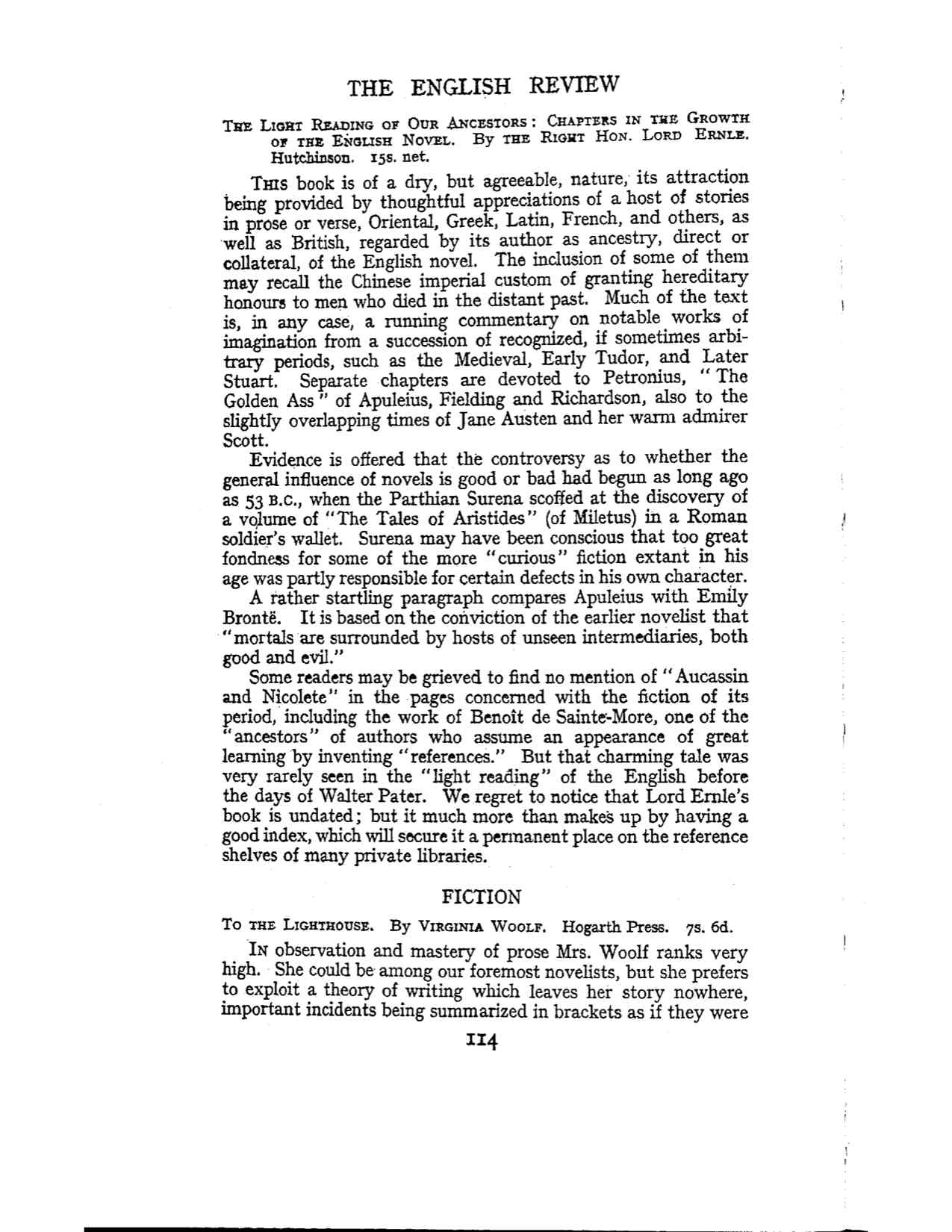
The English Review. July 1927, pp. 114-15
TO THE LIGHTHOUSE. By VIRGINIA WOOLF. Hogarth Press. 7s. 6d.
IN observation and mastery of prose Mrs. Woolf ranks very
high. She could be among our foremost novelists, but she prefers
to exploit a theory of writing which leaves her story nowhere,
important incidents being summarized in brackets as if they were
[new page]
a tedious necessity. The lighthouse which provides the title is
the aim of a trip by sea which attracts the Ramsay family. It
is proposed, put off, and not achieved till the end of the book,
when Mrs. Ramsay is dead. Her character is a fine achievement.
At fifty, with hollow cheeks and white hair, she is still beautiful,
still strangely attractive, and round her revolve various persons,
including her husband, a mooning professor blind to ordinary
things, and, in spite of his egoism, inspiring pity and gratitude in
his wife. She looks after the shabby seaside house and their host
of children. The important moments of the book come in
obscure, broken hints, attempts to recapture the meaning, which
for no reason at all, as perhaps they are stepping out of the tube or
ringing a doorbell, descends on people, making them symbolical,
making them representative. . .
This transcendence of symbols is pictured in a deliberately
interrupted style, meant somehow to reproduce it.






